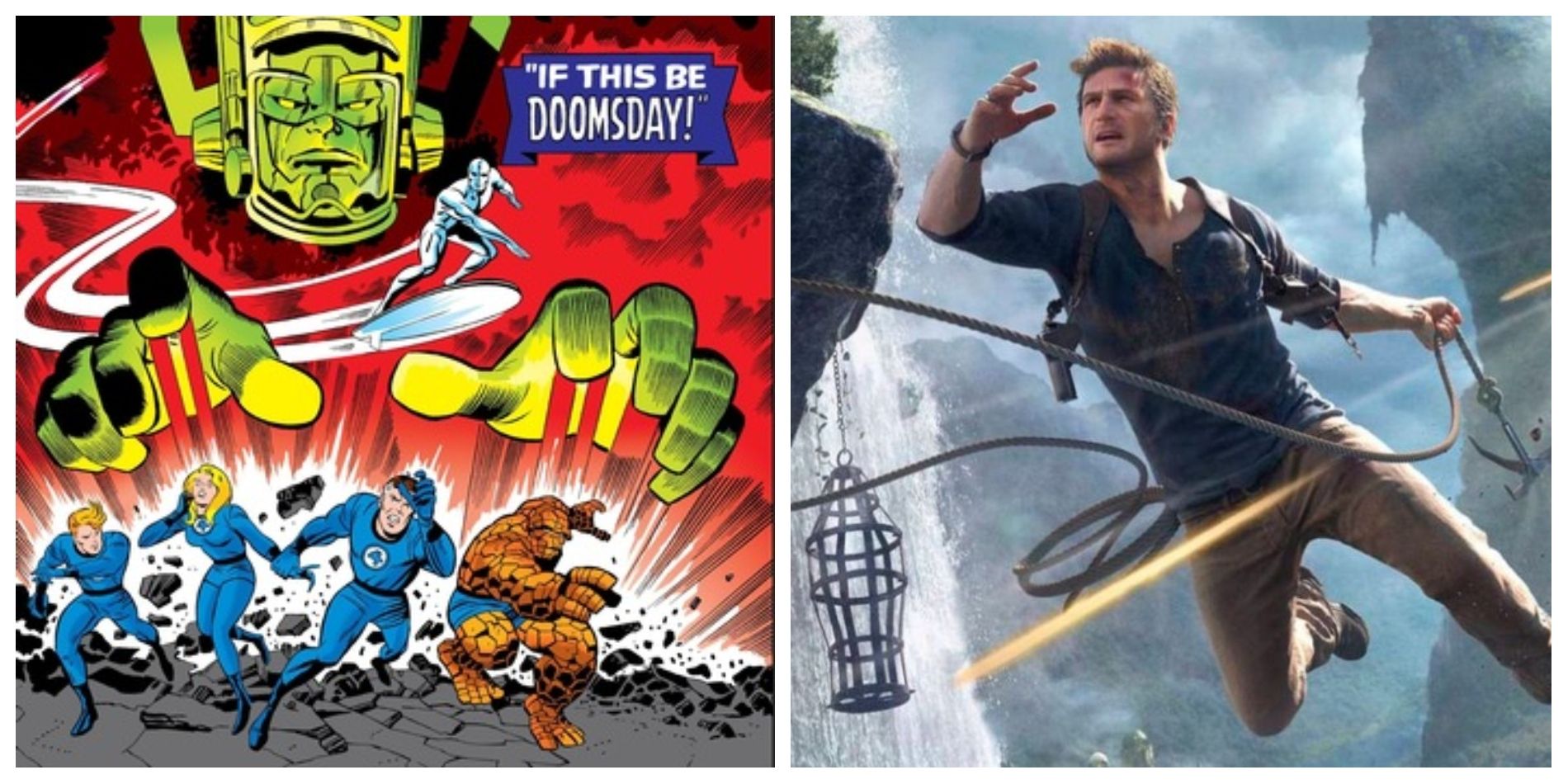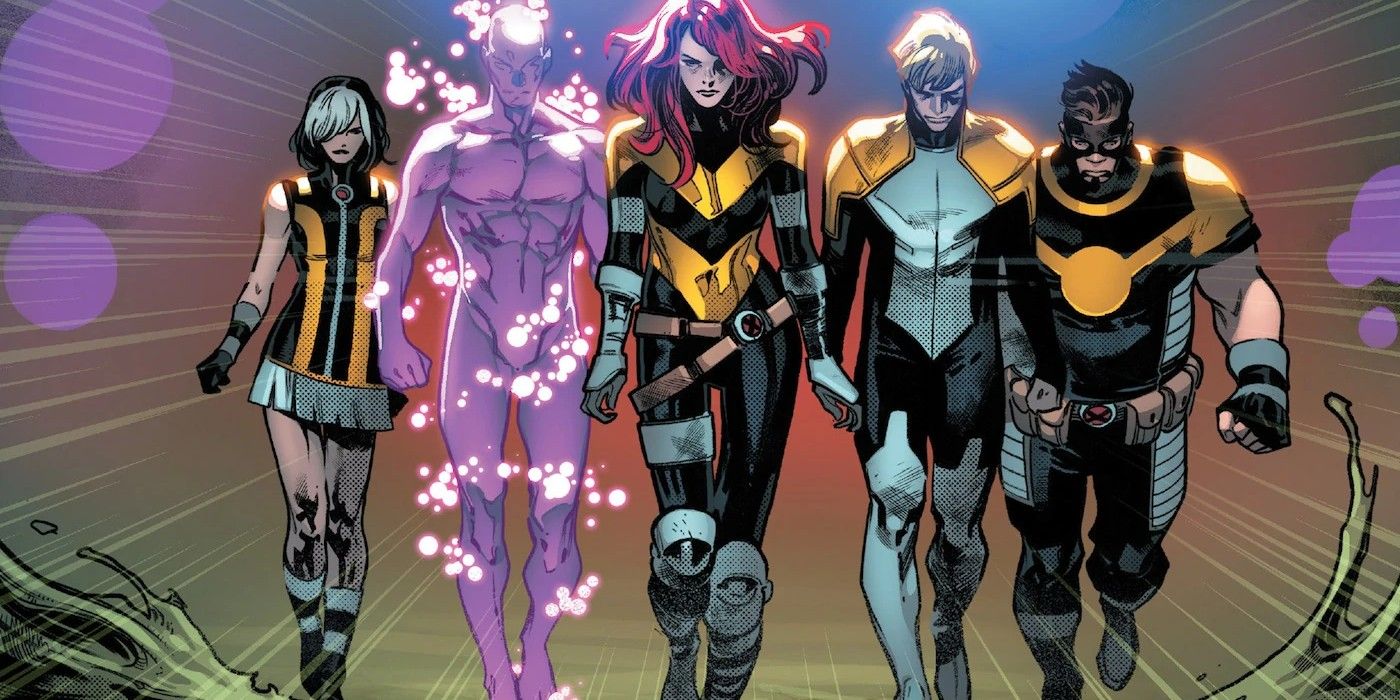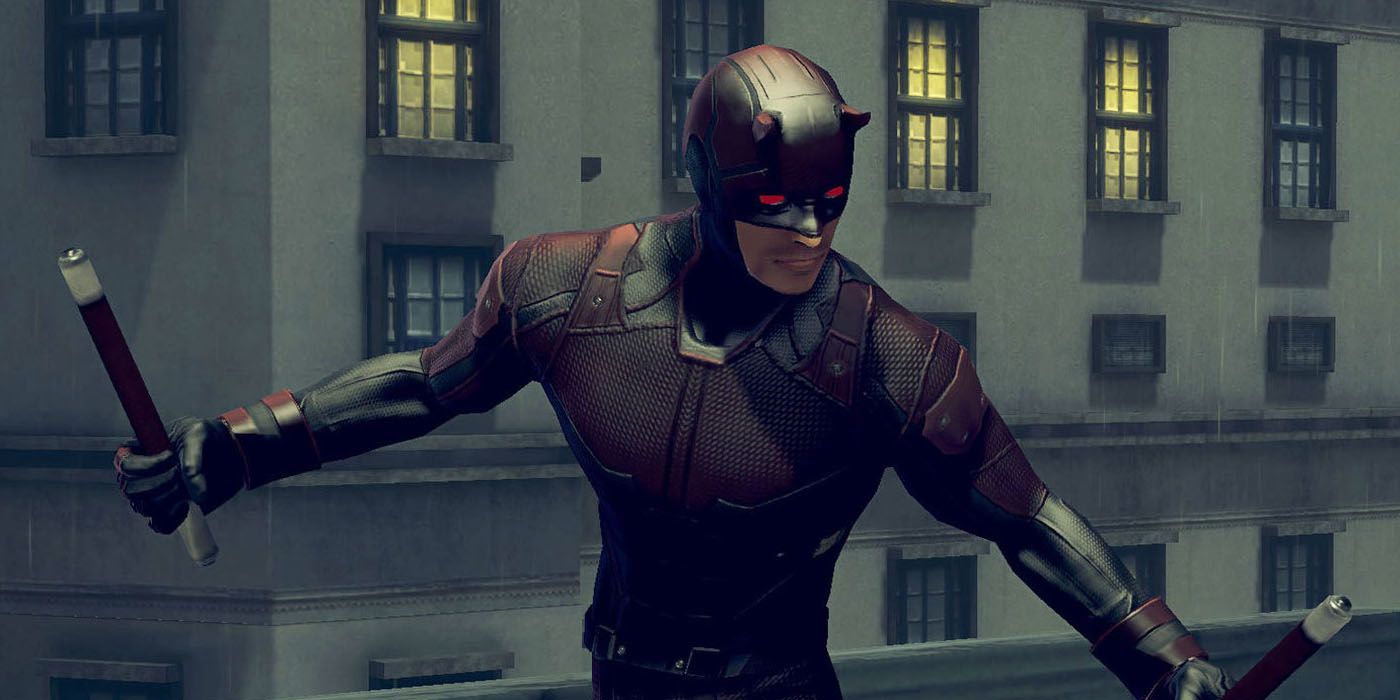
The upcoming Marvel game from Skydance New Media is an exciting prospect for gamers, in part because Skydance is headed by Amy Hennig, a gaming industry veteran who was the creative director for the early Uncharted games, and also directed several Legacy of Kain games, including Soul Reaver 2. Hennig’s ties to the popular Uncharted franchise have led many to expect a cinematic action game with an original take on the heroes of Marvel, but the upcoming game needs to distance itself from Uncharted instead of mimicking its tone, if it wants to stand out from the bulk of homogenized Marvel-based media. Uncharted was a pulp adventure story as interpreted through a modern lens, and much of the Marvel Cinematic Universe follows this same pattern. By stepping away from Uncharted’s pulp adventure roots while retaining its first-class presentation, the new Skydance Marvel project can go beyond wowing players with its graphics and tell a meaningful story as well.
A statement from Hennig following the announcement of the Skydance/Marvel collaboration included, “The Marvel Universe epitomizes all the action, mystery and thrills of the pulp adventure genre that I adore and lends itself perfectly to an interactive experience.” While this is absolutely true of many formative Marvel comic books, and the early films of the MCU, Marvel’s comics ventured beyond pulp adventure decades ago, and the MCU has begun the same shift in recent years. Early Marvel titles like Fantastic Four are archetypal pulp “super science” adventures, but later comics have featured darker, introspective character studies, metaphors for intolerance and bigotry, and questions of the proper use of power and authority. Skydance’s game should not backpedal to pulp adventure when both Marvel’s films and comics have largely moved beyond that kind of storytelling.
The Skydance Marvel game is likely not X-Men, but seeing the evolution of X-Men comics, as well as the increasing maturity of MCU storytelling, shows that pulp adventure is a fine launching point, just not an end goal. Early X-Men adventures were not significantly different from any other superhero team. Though the group was described as “strange,” it was not until a year into the comic that anthropologist Bolivar Trask introduced the idea that mutants should be hated and feared into the public consciousness. Over the years, the X-Men shifted from being a “younger Avengers,” complete with FBI-approval and government coordination, to being a team of fugitives and refugees, struggling against human bigotry and violence as much as “evil mutants.” The X-Men still had pulp-styled adventures, like their forays into space to deal with threats to the Shi’ar empire, and clashes with wizards and demons, but from the graphic novel God Loves, Man Kills, and on, more of the focus of X-Men became on its role as a metaphor for tolerance and diversity.

Some rumors point to Skydance’s game being Ant-Man or Fantastic Four, both comics rooted in pulp traditions. As already adapted in the MCU, the Ant-Man movies give examples of modernized “super science” pulp, full of quips, jokes, and a self-aware tone that makes for an entertaining movie. Many of the early MCU films fall in this category of modern-day pulp, from the first Captain America focusing on Nazis seeking an extra-dimensional relic, to Iron Man’s action-hero scientist pulp archetype. Later MCU films and television series have shifted into more complex territory, like Wandavision’s surreal personal horror and Falcon and the Winter Soldier’s hard questions on the intersection of race, war, and idealism.
Following Uncharted, Naughty Dog went on the develop The Last Of Us games, which captured ever bit of the graphical fidelity and cinematic presentation of Uncharted, alongside more grounded and complex storytelling. The Last Of Us 2 eschewed revenge conventions to showcase the consequences of cycles of violence and expand player’s perspectives, instead of taking the easier road of built in catharsis and pre-planned emotional beats. There is certainly still a place in gaming, and other forms of media, for the simple thrills of a good pulp adventure, but this returns to a style that Marvel-based media, in particular, has already become oversaturated with.
Marvel’s comics grew beyond pulp adventure, as has the MCU, and Marvel-based games should do no less. Less likely (but possibly more deserving) Marvel characters who could come to Skydance’s videogame adaptation include those with complex pasts and personal struggles, in addition to the external struggles showcased in pulp adventure. Jessica Jones is a character who was able to pick up the pieces following a personal trauma. Characters like Sentry and Legion struggle with mental illness and inner demons, making them their own worst enemies. The X-Men remain a multi-generational metaphor for accepting those who are different, even when they appear frightening and threatening to the status quo. These all offer options with more built-in potential for strong stories beyond a hero’s quest to stop a villain.

Other game developers, including Sony Bend, took lessons from Hennig and Uncharted. For its upcoming title, gamers can hold out hope that Skydance will also learn from shifts in gaming and cinematic storytelling, as well. A simple pulp hero story, presented with cinematic flair and clever writing, could absolutely entertain gamers, but it does not break the mold from what they have been seeing on screens for decades. Recent re-inventions like God of War 2018 were well-received, showing gamers might be ready for their pulp heroes to grow up along with them. If Skydance can pair the presentation of the Uncharted series with the more complex stories that both recent MCU projects, and modern videogames, have begun to embrace, then it will have a more lasting impact, where a “Marvel Uncharted” would limit itself to entertainment without lasting impact.
The subject character of Skydance’s game says less about its tone than the actual handling of the story. Some rumors suggest Skydance might adapt Marvel’s Daredevil as their game, but the handling of such a game could offer wildly different tones. A straightforward Daredevil game could play like Marvel’s Spider-Man with a different gimmick to the hero, but a story-rich Daredevil game could follow the template of the Netflix series, which pulled from later Daredevil comics that called the character’s faith, sense of justice, and dedication to the law, into question. Even if Skydance is making a Marvel game based on a property with pulp adventure roots, like Ant-Man or Fantastic Four, there are decades of more recent comic books to mine ideas from that take these characters beyond their roots in straightforward pulp adventures, and make their inner struggles as much a part of the story as their external battles.
from ScreenRant - Feed https://ift.tt/30xtYoh


0 Comments